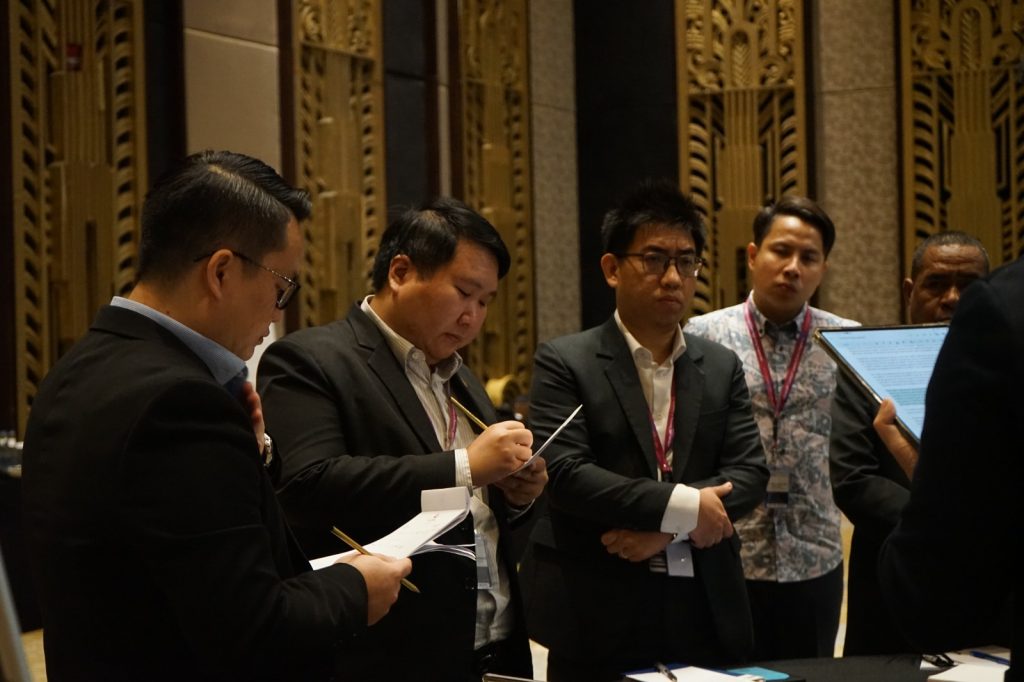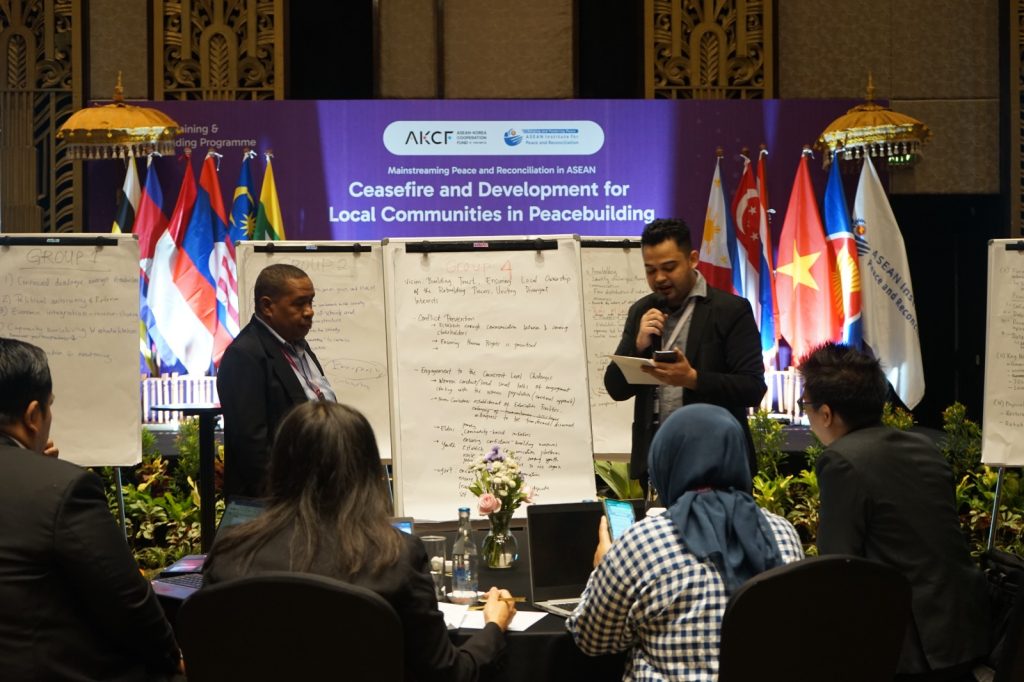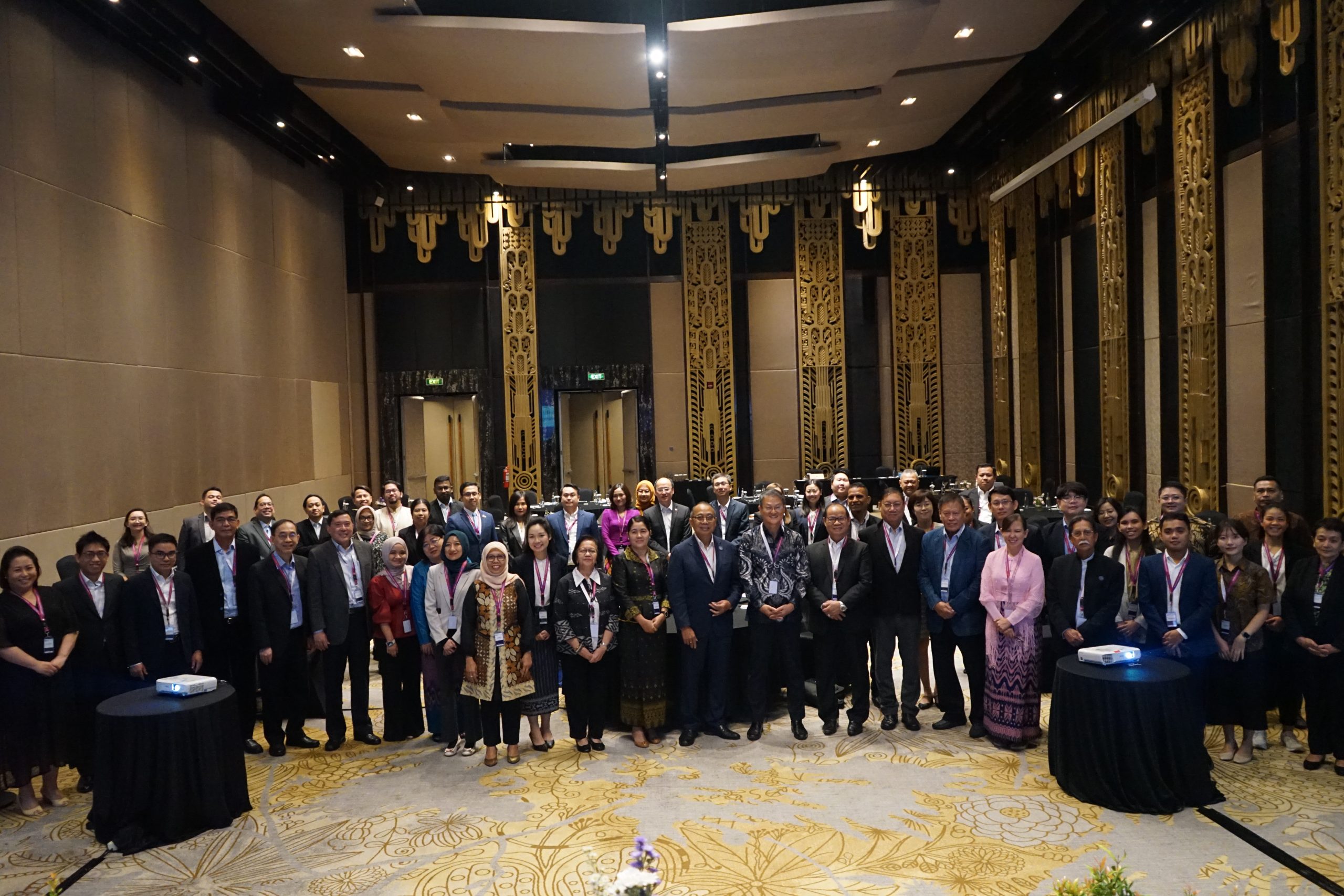MAINSTREAMING PEACE RECONCILIATION IN SOUTHEAST ASIA: AN ASEAN-IPR TRAINING SERIES, Leg 2: “Ceasefires and Development for Local Communities in Peacebuilding”
25-27 October 2023
Bali, Indonesia
Up to 70 participants attended and participated in the 2nd Leg of the ‘Mainstreaming Peace & Reconciliation in Southeast Asia: an ASEAN Institute for Peace & Reconciliation (ASEAN-IPR) Training Series (ASEAN-IPR 2nd Leg Training). The ASEAN-IPR 2nd Leg Training took on the theme ceasefires and development for local communities in peacebuilding, and was convened 25-27 October 2023 in Bali, Indonesia. This Training was convened with the support of the Government of the Republic of Korea, through the ASEAN-Korea Cooperation Fund (AKCF).
The Training – namely its Opening Seminar – was attended by Members of the ASEAN-IPR Governing Council (GC), Advisory Board (AB), ASEAN Women for Peace Registry (AWPR), and its main target beneficiaries – namely junior to mid-level officials from relevant ministries and/or government agencies of ASEAN Member States. All participants and trainers attended in-person, while some of the speakers and/or resource persons joined in-person as well as through virtual platform.
The Training was officiated by the Executive Director (ED) of ASEAN-IPR, Ambassador of the Republic of Korea to ASEAN, and Chair of the ASEAN-IPR Governing Council. In his Welcoming Remarks, the ED introduced that this multi-year Training Series was initiated in 2019 by then Representative of the Philippines to the Governing Council, with 3 legs looking at various aspects of peace processes: the 1st focusing on mediation; the 2nd on ceasefires; and 3rd on reconciliation/reintegration. He further highlighted that the Training Series has the overall objective to address peace through a more comprehensive approach of peacebuilding – with the development of Training Module envisioned for the Institute’s regularised Training Programmes. The 1st and 3rd Legs have been convened in Manila (2019) and Vientiane (2022), respectively. Thus, with the 2nd Leg convened, the pilot version of these Training Series has been completed full circle.
H.E. Lee Jang-keun, Ambassador of ROK to ASEAN, in his Opening Remarks, underlined the ROK’s commitment in promoting and supporting ASEAN as a peaceful and stable region, namely through the Korea-ASEAN Solidarity Initiative (KASI). Under the KASI, the ROK will be doubling the size of its annual contributions to the ASEAN-ROK Cooperation Fund by 2027 to support more of ASEAN’s projects and activities. In his pre-recorded message, H.E. Ngurah Swajaya, Chair of the ASEAN-IPR Governing Council, underscored that ASEAN Member States have a wealth of knowledge and wisdom, and under the work of the ASEAN-IPR, we should be able to document and use such wealth of knowledge as important resources. Thus, the findings and lessons learned obtained from the Training is pivotal to help maintain peace and stability in the region.
The 2nd Training Module, developed by Lead Expert Alma Evangelista (Philippines), ROK Expert Dr. Bora Park, and Regional Experts Dr. Delsy Ronnie (Indonesia), Dr. Zokhri Idris (Malaysia) and Ms. Arachapon Nimitkulpon (Thailand), consisted of three parts: (1) understanding peace and conflict, namely from an ASEAN regional perspective; (2) understanding ceasefires; and (3) understanding post-conflict peacebuilding and development in conflict-affected areas.
While Leg 1 & 3 have been more focused on seminar/lecture style on its training methodology, the 2nd Leg focused more on active participation and group work – in an endeavour of a more active learning method. Throughout the three-day period of the Training, the 25 core participants were given various teaching/learning methods, including peer-to-peer learning.

The first day had many presentations and/or panel lectures on concepts – such as peace and conflict concepts and dynamics; Southeast Asian experience with armed conflict and peace processes; concept of ceasefires; as well as experiences from ASEAN Member States and other region(s) with intra-state and/or inter-state ceasefire/armistice.
Going into the second day, participants were divided into groups and rotated for a World Café discussion – where participants from Indonesia, Myanmar and Philippines shared their knowledge of strengths, weaknesses, successes, challenges and failures in their respective country’s ceasefire process/implementation. Participants were also given new materials on development assistance to conflict-affected communities, and presentations on participation and inclusion as key elements of effective community-based peacebuilding and development – with perspectives from women’s roles, youth participation, and former combatants reintegration into community.
On the third day, participants went into simulation exercises with role play to identify and discuss key actions by various stakeholders to build and sustain peace in post-conflict settings. Moreover, during the third day, participants also had group discussions on elements of effective post-conflict peacebuilding and development – applied to imaginary communities, while also discussing possible role of ASEAN in supporting such imaginary communities’ development/peacebuilding processes.

The core participants were given pre- and post-training surveys – in order to evaluate their progress, as well as their review of the overall convening of the Training. Based on the post-training surveys – many highlighted the peer-to-peer learning and/or group discussions to be their most favoured sessions.
Stay tuned to ASEAN-IPR’s Website and social media platforms on our upcoming activities, most of which are open to public participation. For inquiries, please contact us at ADMIN@asean-aipr.org.
*******

